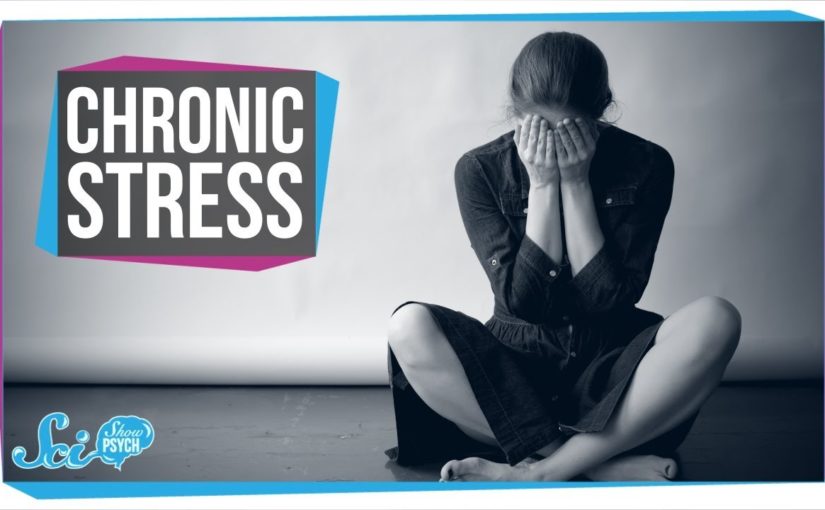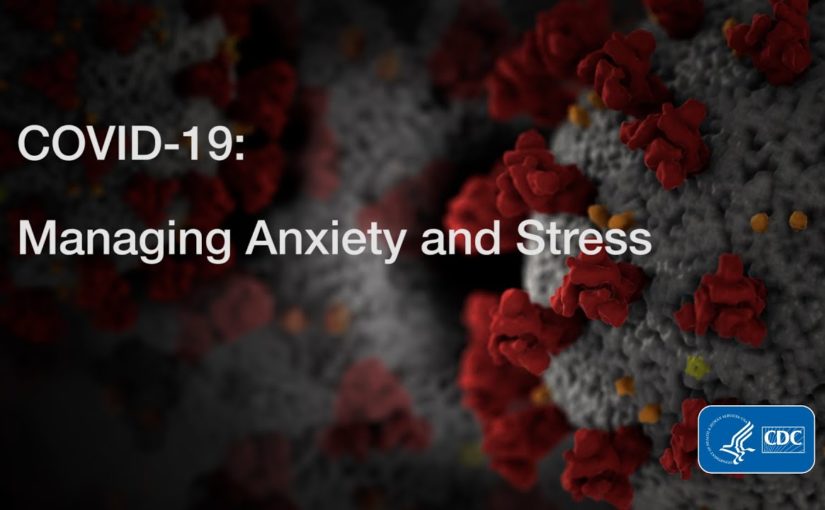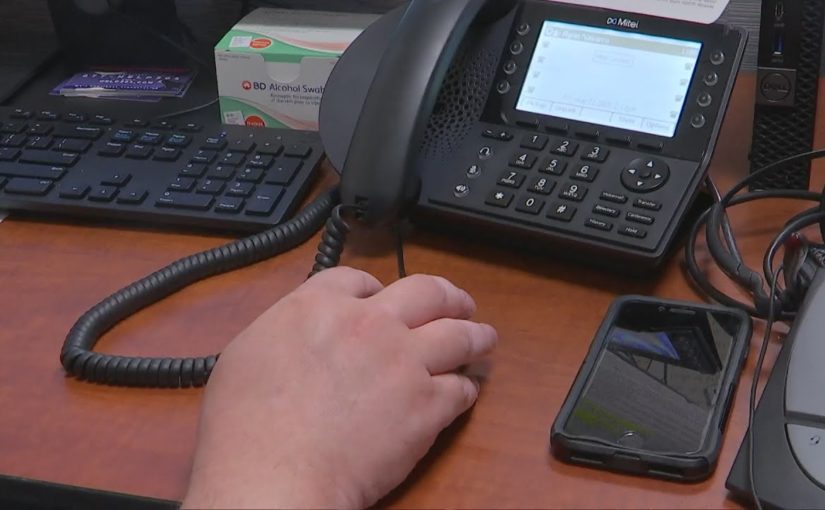[♩ INTRO ] Stress happens. And that’s not always bad—starting a new
job or getting married can both be happy things, but they also can be really stressful. There are some kinds of stress that just don’t
seem to go away, though. Like the feeling that you’re drowning in
work, but still perpetually worried about making ends meet. If you deal with a lot of stress every day,
for months or years on end, then stress doesn’t just feel awful—it actually causes you physical
harm. Psychologists call any event or situation
that puts pressure on you or threatens your well-being a stressor, while stress refers
to your psychological and physical reactions. Stressors that are one and done—like locking
your keys in your car, or forgetting your wallet—bring on acute stress. But when stressors are repeated or continuous,
that’s chronic stress.
Things like abusive relationships, living
in poverty, and being discriminated against have all been shown to cause chronic stress. And that psychological anguish takes a toll
physically. When you experience acute stress, your body
activates a system called the hypothalamic-pituitary-adrenocortical axis, or just HPA axis because why would you
want to say all that other stuff over and over again. It starts deep in your brain, in the limbic
system — the part responsible for a lot of your automatic emotional reactions, among
other things. There, a region called the hypothalamus releases
hormones that start a whole chain of more hormones being released — first by your
pituitary gland, and then by your adrenal glands, which release a bunch of adrenaline
and cortisol into your bloodstream. And those two hormones trigger the “fight-or-flight”
response. They boost physical activity by increasing
your blood sugar and the blood flow to your muscles, and bump up your metabolism at the
same time.
The idea is that the physical boost helps
you fight the stressor or run away. So, like, if you were suddenly face to face
with a bear, the surge in energy would help you either outrun it, or go all like Revenant
on it. The same system is activated by chronic stress,
but things get a bit more complicated. Researchers have found that people under some
kinds of chronic stress have perpetually high cortisol levels, as if their HPA axis is running
constantly. For others, it can depend on the timing, with
higher cortisol levels near the start of the stress before it actually dips lower than
usual.
But we do know that while this stress reaction
can be helpful at times, having it running all the time is a problem. People under chronic stress are at higher
risk for all kinds of ailments, like heart disease, autoimmune diseases, and mental disorders
like anxiety and depression. That’s because, in addition to it being
super unpleasant to be stressed out all the time, the stress response is constantly sapping
your energy. The resources used by fight-or-flight have
to come from somewhere, and one of the places they come from is your immune system.
On the molecular level, the same cortisol
that works to get extra glucose to your muscles also stops your body from making as many infection-fighting
white blood cells as it normally would. So stress can tank your ability to fight infections. It's kind of like evolution is telling your
body not to worry about fighting off that cold right now, because you need to fight
that bear that is right in front of you. Except with chronic stress, the bear isn’t
a bear. It’s your crappy job. Or your unhappy relationship. Or whatever it is that stresses you out all
the time. And that means your immune system never gets
the chance to recover and deal with that cold as easily as it normally would. One famous experiment demonstrating this involved
11 dental students who volunteered to have their mouths biopsied twice: first during
summer vacation, and then again during exam week.
It took an average of 3 days longer for the
wounds to heal while they were stressed about exams. All kinds of other studies have gotten similar
results — some by punching small holes in people like they did with the dental students,
and others by observing how stress affects recovery from surgery and other major wounds. There's also research suggesting that chronic
stress explains part of the relationship between poverty and health.
Even just the perception of being in a lower
socioeconomic class is associated with an increase in respiratory infections. Stress can also advance the aging process. By the time you get older, your DNA has had
to replicate so many times that the protective parts at each of the ends of the chromosome,
called telomeres, can kind of start to fray. When telomeres are shorter, it's more likely
that there will be errors in copying genes. And those errors increase your risk of disease. There’s evidence that having more cortisol
in your blood interrupts the repair of telomeres. Which might explain why stress is linked to
diseases that are also associated with age, like heart disease, cancer, and anemia.
To stay healthy, the best thing you can do
is get rid of the chronic stress. But, easier said than done. If you can’t get rid of it completely, things
like meditation and relaxation therapies can help lower your stress response. And, weirdly enough, so might changing how
you think about stress. Studies have shown that when people think
about the source of stress as a challenge to overcome instead of a threat to their well-being,
that seems to lower their perceived stress and reduce their body’s physical response. There’s another way you might be able to
improve your health, too: help others reduce their stress. In a sample of over 800 older adults, those
with high stress who also reported helping friends or neighbors with things like housework
or childcare had mortality rates similar to those with low stress. Whereas those with high stress who didn’t
help out had reduced odds of survival. So, chronic stress is not good for anyone. But even if you can’t avoid being stressed
out all the time, there are ways to help yourself relax — and sometimes you can even reduce
other people’s stress in the process.
Thanks for watching this episode of SciShow
Psych! If you want to keep up to date with our latest
videos explaining how these big ole noggins of ours work, head over to youtube.com/scishowpsych
and click on that subscribe button because it’ll all come into your subscription box
and you’ll watch every single one of them and it really helps… with the YouTube algorithm. Thank you! [♩ OUTRO ].
Category: Getting Help
COVID-19: Managing Anxiety and Stress
Everyone reacts differently to stressful situations
like the COVID-19 pandemic. This can be a time of strong emotions in both
adults and children. You may feel anxious, anger, sadness, or overwhelmed. Find ways to reduce your stress to help yourself
and the people you care about. Learn the common signs of stress, such as
changes in sleep or eating patterns, difficulty concentrating, worsening or chronic health
problems, and increased use of alcohol, tobacco, or other drugs. Take breaks from news stories, including social
media. Take care of your body. Take deep breaths, stretch, or meditate.
Try to eat healthy, well-balanced meals, exercise regularly, get plenty of sleep, and avoid alcohol and drugs. Make time to unwind. Try to do activities you enjoy. Connect with others by phone, text, or email. Share your concerns and feelings with people you trust. If you or someone you know have pre-existing mental health conditions, continue with your treatment and be aware of new or worsening symptoms. Contact a health care provider with any concerns or if stress gets in the way of daily activities for several days in a row. If you or someone you care about are feeling overwhelmed with emotions like sadness, depression or anxiety, get support by calling 1-800-985-5990 OR text TalkWithUs, to 66746.
Learn more at cdc.gov/covid19 and coronavirus.gov. Let's take care of ourselves, our family, and our community..
Try to eat healthy, well-balanced meals, exercise regularly, get plenty of sleep, and avoid alcohol and drugs. Make time to unwind. Try to do activities you enjoy. Connect with others by phone, text, or email. Share your concerns and feelings with people you trust. If you or someone you know have pre-existing mental health conditions, continue with your treatment and be aware of new or worsening symptoms. Contact a health care provider with any concerns or if stress gets in the way of daily activities for several days in a row. If you or someone you care about are feeling overwhelmed with emotions like sadness, depression or anxiety, get support by calling 1-800-985-5990 OR text TalkWithUs, to 66746.
Learn more at cdc.gov/covid19 and coronavirus.gov. Let's take care of ourselves, our family, and our community..
New hotline to help West Virginians cope with covid-related stress
EFFECTS OF THE PANDEMIC, YOU NOW HAVE THE ABILITY TO TALK THINGS THROUGH. A NEW HOTLINE CALLED "HELP 3-0-4" HAS BEEN SPECIFICALLY CREATED FOR WEST VIRGINIANS WHO NEED EMOTIONAL SUPPORT DURING THIS TIME. 13 NEWS REPORTER MORIAH DAVIS HAS THE DETAILS. NATS OF SOMEONE ANSWER PHONE IT'S AN UNDERSTATEMENT TO SAY WE'VE ALL FELT THE IMPACTS OF COVID-19 IN ONE WAY OR ANOTHER. BUT SOME PEOPLE NEED EXTRA SUPPORT WHEN IT COMES TO COPING.
"HELP 3-0-4" IS A HOTLINE FOR ANYONE FEELING COVID-RELATED STRESS – ANYTIME – NIGHT OR DAY. SHELIA MORAN, DIRECTOR OF MARKETING AND COMMUNICATIONS FOR FIRST CHOICE SERVICES "WHEN THEY CALL, THEY'RE GOING TO REACH A PROFESSIONAL CRISIS COUNSELOR. THE CRISIS COUNSELOR IS GOING TO TALK WITH, PROCESS WHAT'S GOING ON AND HELP THEM SORT OF FIND SOME STRESS MANAGEMENT STRATEGIES, SOME PROBLEM SOLVING." IN A RECENT POLL BY THE AMERICAN PSYCHIATRIC ASSOCIATION, 36 PERCENT OF AMERICANS SAY COVID- 19 IS HAVING A SERIOUS IMPACT ON THEIR MENTAL HEALTH.
59 PERCENT SAY IT'S HAVING A SERIOUS IMPACT ON THEIR DAY-TO-DAY LIVES. AND, IN A 20-18 C-D-C STUDY, WEST VIRGINIA WAS RANKED AS THE LEAST HEALTHY STATE CONCERNING MENTAL HEALTH. MORAN "WE FEEL A LOCAL LINE IS GOING TO BE VERY HELPFUL AND WE KNOW FROM OPERATING A LOT OF OTHER HELP LINES THAT PEOPLE APPRECIATE IT WHEN THEY REACH SOMEONE THAT THEY KNOW IS FAMILIAR WITH THEM." FIRST CHOICE SERVICES REPORTS CALLS ARE UP 15 PERCENT OVER THE PAST FOUR MONTHS COMPARED TO THIS TIME LAST YEAR. THIS HOTLINE LAUNCHED ABOUT TWO WEEKS AGO. MORAN "AFTER THE FIRST WEEK IT REALLY STARTED RINGING AND WE'VE ALREADY GOTTEN QUITE A FEW CALLS, A LOT OF PEOPLE WHO ARE CALLING US ARE ANXIOUS, LONELY, WE'RE GETTING CALLS FROM ALL AGES." STAFF MEMBERS SAY THE GOAL IS TO PREVENT A CRISIS BEFORE IT HAPPENS. MORAN "THAT'S WHAT WE CAN DO FOR THEM, WE CAN BE THAT PERSON THAT'S THERE FOR THEM WHEN THEY NEED TO TALK." MORIAH STANDUP: IF SOMEONE MENTIONS WHILE THEY ARE ON THE PHONE, THEY HAVE A DRUG ADDITION OR ANOTHER TYPE OF ADDITION, THE COMPANY OFFERS OTHER HOTLINES THEY CAN CALL FOR HELP.
IN CHARLESTON, MORIAH DAVIS, 13 NEWS WORKING FOR YOU. IN ADDITION TO CALLING, YOU CAN ALSO TEXT THE HOTLINE NUMBER FOR HELP OR GO ONLINE AND CHAT AT HELP 3-0-4 DOT-COM. IF WE WENT THROUGH ALL THAT TOO QUICKLY FOR YOU — WE'VE GOT IT ONLINE AT WOWK-TV DOT-COM. WE HAVE NEW DETAILS ABOUT A BABY THAT WAS FOUND LOCKED IN A CAR IN CHARLESTON. KATHLEEN VETTER OF SOUTH CHARLESTON HAS BEEN CHARGED WITH GROSS CHILD NEGLECT.
"HELP 3-0-4" IS A HOTLINE FOR ANYONE FEELING COVID-RELATED STRESS – ANYTIME – NIGHT OR DAY. SHELIA MORAN, DIRECTOR OF MARKETING AND COMMUNICATIONS FOR FIRST CHOICE SERVICES "WHEN THEY CALL, THEY'RE GOING TO REACH A PROFESSIONAL CRISIS COUNSELOR. THE CRISIS COUNSELOR IS GOING TO TALK WITH, PROCESS WHAT'S GOING ON AND HELP THEM SORT OF FIND SOME STRESS MANAGEMENT STRATEGIES, SOME PROBLEM SOLVING." IN A RECENT POLL BY THE AMERICAN PSYCHIATRIC ASSOCIATION, 36 PERCENT OF AMERICANS SAY COVID- 19 IS HAVING A SERIOUS IMPACT ON THEIR MENTAL HEALTH.
59 PERCENT SAY IT'S HAVING A SERIOUS IMPACT ON THEIR DAY-TO-DAY LIVES. AND, IN A 20-18 C-D-C STUDY, WEST VIRGINIA WAS RANKED AS THE LEAST HEALTHY STATE CONCERNING MENTAL HEALTH. MORAN "WE FEEL A LOCAL LINE IS GOING TO BE VERY HELPFUL AND WE KNOW FROM OPERATING A LOT OF OTHER HELP LINES THAT PEOPLE APPRECIATE IT WHEN THEY REACH SOMEONE THAT THEY KNOW IS FAMILIAR WITH THEM." FIRST CHOICE SERVICES REPORTS CALLS ARE UP 15 PERCENT OVER THE PAST FOUR MONTHS COMPARED TO THIS TIME LAST YEAR. THIS HOTLINE LAUNCHED ABOUT TWO WEEKS AGO. MORAN "AFTER THE FIRST WEEK IT REALLY STARTED RINGING AND WE'VE ALREADY GOTTEN QUITE A FEW CALLS, A LOT OF PEOPLE WHO ARE CALLING US ARE ANXIOUS, LONELY, WE'RE GETTING CALLS FROM ALL AGES." STAFF MEMBERS SAY THE GOAL IS TO PREVENT A CRISIS BEFORE IT HAPPENS. MORAN "THAT'S WHAT WE CAN DO FOR THEM, WE CAN BE THAT PERSON THAT'S THERE FOR THEM WHEN THEY NEED TO TALK." MORIAH STANDUP: IF SOMEONE MENTIONS WHILE THEY ARE ON THE PHONE, THEY HAVE A DRUG ADDITION OR ANOTHER TYPE OF ADDITION, THE COMPANY OFFERS OTHER HOTLINES THEY CAN CALL FOR HELP.
IN CHARLESTON, MORIAH DAVIS, 13 NEWS WORKING FOR YOU. IN ADDITION TO CALLING, YOU CAN ALSO TEXT THE HOTLINE NUMBER FOR HELP OR GO ONLINE AND CHAT AT HELP 3-0-4 DOT-COM. IF WE WENT THROUGH ALL THAT TOO QUICKLY FOR YOU — WE'VE GOT IT ONLINE AT WOWK-TV DOT-COM. WE HAVE NEW DETAILS ABOUT A BABY THAT WAS FOUND LOCKED IN A CAR IN CHARLESTON. KATHLEEN VETTER OF SOUTH CHARLESTON HAS BEEN CHARGED WITH GROSS CHILD NEGLECT.
Maximum Shear Stress Theory – Theories of Elastic Failure – Strength of Materials
Hello friends here in this video we are going to see Maximum Shear Stress theory I write the statement for that first maximum shear stress theory it states that so here this is a statement of maximum shear stress theory it states that the failure or yielding yielding means permanent deformation so the failure of permanent deformation of a component occurs when the working stress value reaches the limiting strength value in a material so if the working stress reaches the limiting strength limiting strength is nothing but maximum stress in the material then we can say that the material is going to fail and here I can explain this in a manner by drawing a graph here we have a stress-strain graph in which first there is proportional limit then permanent deformation then upper and lower real point after that it reaches maximum stress value here this is Sigma Max and finally it will be failing at the breaking point so now here as we are talking about the maximum shear stress so the failure of yielding yell failure of yielding means at Point D the material is subjected to maximum stress and this graph which I have drawn it is for ductile materials so the maximum stress and since here I have written the failure of a or yielding of a component occurs when the working stress value reaches the limiting strength which is the stress here I have written in this case it is shear stress so we have to avoid we have to avoid the material to reach up to maximum stress that is if we can decrease the value of stress then the material won't be going up to point D it will remain below point D and if it is remaining below point D then the failure chances are very rare or very less because the material won't cross the maximum stress value so we should try to bring the material below point D and that we can do it by using the condition in which we use factor of safety so therefore we can say that permissible or working shear stress it will be given by tau permissible is equal to tau max that is the maximum shear stress divided by fos that is factor of safety next this same shear stress relation can also be written as therefore the permissible shear stress is also written as ultimate stress upon to into factor of safety because the value of shear stress is half of the value of yield stress so here I have replaced the maximum shear stress with the yield stress because yield stress is the maximum value of stress in case of ductile materials and hence here I can write down that maximum shear stress theory is used for ductile materials so here in this video we have seen what is meant by maximum shear stress theory
Romany Malco’s ‘Message to Trayvon Sympathizers’ earns kudos from Stacey Dash
http://twitter.com/#!/Robi5150/status/359106988023623681Actor Romany Malco (“40-Year-Old Virgin,” “Weeds”) has written a “message to Trayvon Martin sympathizers” that has won applause from many on Twitter: https://twitter.com/romanymalco/status/357595382907285506In his article, Malco places much, but not all, of his focus on the media:Don’t you find it peculiar that the same media outlets who have worked so diligently to galvanize the negative stigmas of black men in America are now airing open debates on improving the image of black males in American media? Do you honestly think CNN is using their competitive time slots for philanthropy?“You never want a serious crisis to go to waste.” – Rahm Emanuel
https://twitter.com/romanymalco/status/357595382907285506In his article, Malco places much, but not all, of his focus on the media:Don’t you find it peculiar that the same media outlets who have worked so diligently to galvanize the negative stigmas of black men in America are now airing open debates on improving the image of black males in American media? Do you honestly think CNN is using their competitive time slots for philanthropy?“You never want a serious crisis to go to waste.” – Rahm Emanuel Malco also touched on culture, Chicago violence that hardly gets a blurb from the media, education, and politicization of events that seeks to score political points instead of solving problems.Actress Stacey Dash responded:https://twitter.com/REALStaceyDash/status/359024418594361345Other tweeters have weighed in:https://twitter.com/YoungCons/status/359032181441576961https://twitter.com/OrangeCoSurf/status/359102190926839808https://twitter.com/PatriotLemonade/status/359057678468788225https://twitter.com/luvGodncountry/status/359026126967947264https://twitter.com/CatsPolitics/status/358813947840827392https://twitter.com/KurtSchlichter/status/358800615675150336Malco’s opinion certainly adds depth and breadth to the debate.Read more: http://twitchy.com/2013/07/21/actor-romany-malcos-message-to-trayvon-sympathizers-earns-kudos-from-stacey-dash-others/
Malco also touched on culture, Chicago violence that hardly gets a blurb from the media, education, and politicization of events that seeks to score political points instead of solving problems.Actress Stacey Dash responded:https://twitter.com/REALStaceyDash/status/359024418594361345Other tweeters have weighed in:https://twitter.com/YoungCons/status/359032181441576961https://twitter.com/OrangeCoSurf/status/359102190926839808https://twitter.com/PatriotLemonade/status/359057678468788225https://twitter.com/luvGodncountry/status/359026126967947264https://twitter.com/CatsPolitics/status/358813947840827392https://twitter.com/KurtSchlichter/status/358800615675150336Malco’s opinion certainly adds depth and breadth to the debate.Read more: http://twitchy.com/2013/07/21/actor-romany-malcos-message-to-trayvon-sympathizers-earns-kudos-from-stacey-dash-others/
 https://twitter.com/romanymalco/status/357595382907285506In his article, Malco places much, but not all, of his focus on the media:Don’t you find it peculiar that the same media outlets who have worked so diligently to galvanize the negative stigmas of black men in America are now airing open debates on improving the image of black males in American media? Do you honestly think CNN is using their competitive time slots for philanthropy?“You never want a serious crisis to go to waste.” – Rahm Emanuel
https://twitter.com/romanymalco/status/357595382907285506In his article, Malco places much, but not all, of his focus on the media:Don’t you find it peculiar that the same media outlets who have worked so diligently to galvanize the negative stigmas of black men in America are now airing open debates on improving the image of black males in American media? Do you honestly think CNN is using their competitive time slots for philanthropy?“You never want a serious crisis to go to waste.” – Rahm Emanuel Malco also touched on culture, Chicago violence that hardly gets a blurb from the media, education, and politicization of events that seeks to score political points instead of solving problems.Actress Stacey Dash responded:https://twitter.com/REALStaceyDash/status/359024418594361345Other tweeters have weighed in:https://twitter.com/YoungCons/status/359032181441576961https://twitter.com/OrangeCoSurf/status/359102190926839808https://twitter.com/PatriotLemonade/status/359057678468788225https://twitter.com/luvGodncountry/status/359026126967947264https://twitter.com/CatsPolitics/status/358813947840827392https://twitter.com/KurtSchlichter/status/358800615675150336Malco’s opinion certainly adds depth and breadth to the debate.Read more: http://twitchy.com/2013/07/21/actor-romany-malcos-message-to-trayvon-sympathizers-earns-kudos-from-stacey-dash-others/
Malco also touched on culture, Chicago violence that hardly gets a blurb from the media, education, and politicization of events that seeks to score political points instead of solving problems.Actress Stacey Dash responded:https://twitter.com/REALStaceyDash/status/359024418594361345Other tweeters have weighed in:https://twitter.com/YoungCons/status/359032181441576961https://twitter.com/OrangeCoSurf/status/359102190926839808https://twitter.com/PatriotLemonade/status/359057678468788225https://twitter.com/luvGodncountry/status/359026126967947264https://twitter.com/CatsPolitics/status/358813947840827392https://twitter.com/KurtSchlichter/status/358800615675150336Malco’s opinion certainly adds depth and breadth to the debate.Read more: http://twitchy.com/2013/07/21/actor-romany-malcos-message-to-trayvon-sympathizers-earns-kudos-from-stacey-dash-others/Ill Just Wait Here
 Read more: https://imgflip.com/i/68h3n
Read more: https://imgflip.com/i/68h3nPicard Wtf
Relaxed Office Guy
 Read more: https://imgflip.com/i/an905
Read more: https://imgflip.com/i/an905Third World Success Kid
 Read more: https://imgflip.com/i/9dmkk
Read more: https://imgflip.com/i/9dmkkNew For 2021 Lifecoder: ‘life Without Anxiety’
Online Video Workshop ☃☪ This Powerful 3-part Online Self-help Video Workshop Helps Those Suffering From Anxiety Disorders With Life-changing Tools To Reprogram And Self-regulate Anxiety And Panic In Just 10 Days. Delivered With 40+ Topics Videos Over 4+ Hours Of Content.
Everytime i see a good looking girl in public
 Read more: https://imgflip.com/gif/8kyi
Read more: https://imgflip.com/gif/8kyi




















